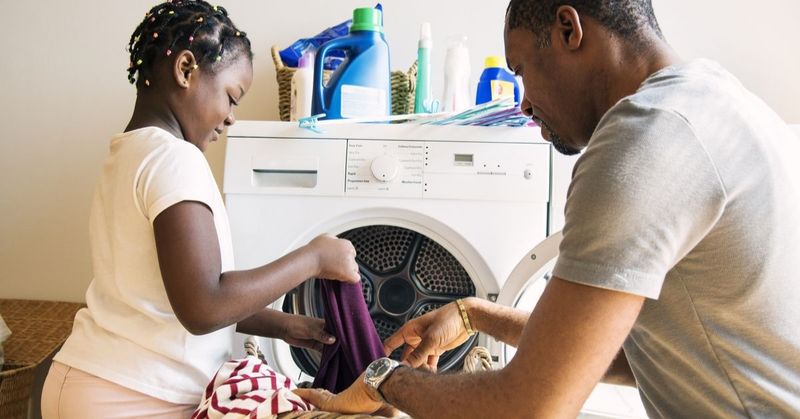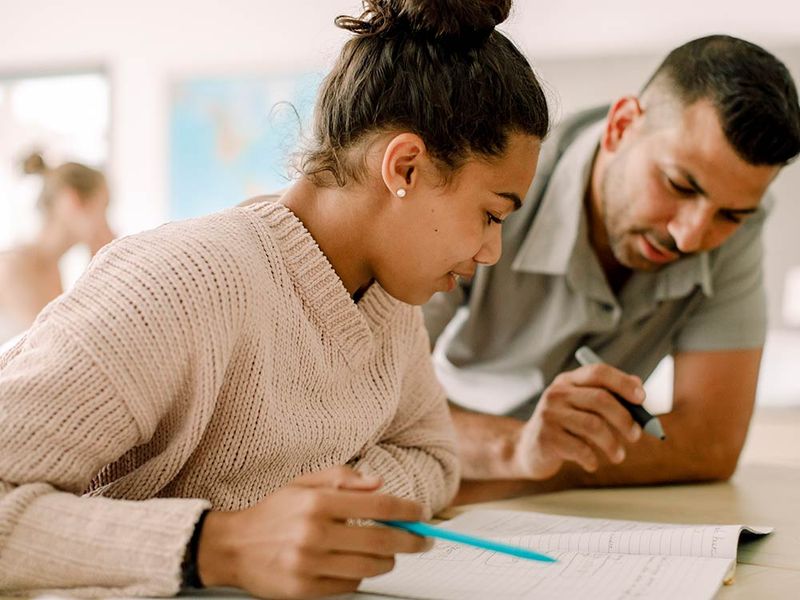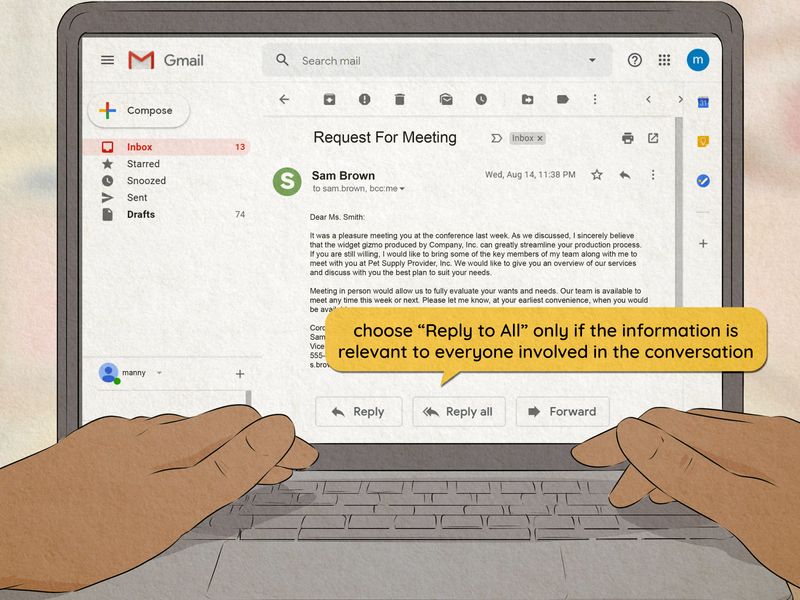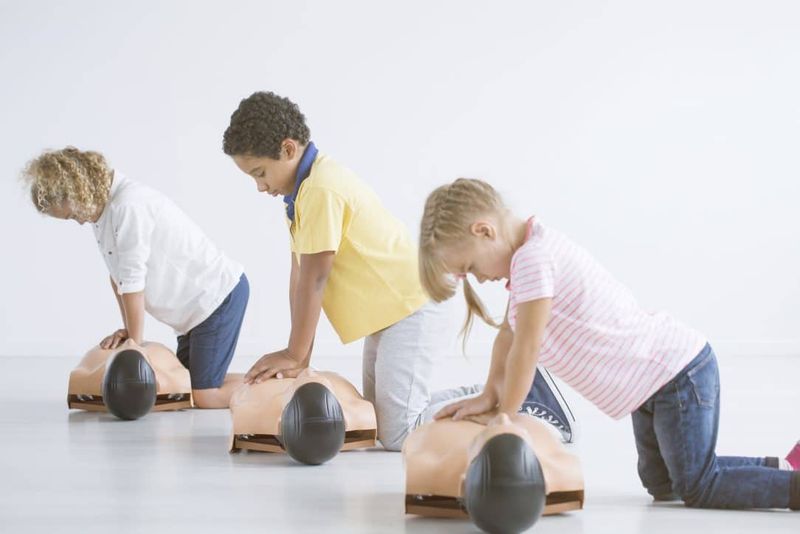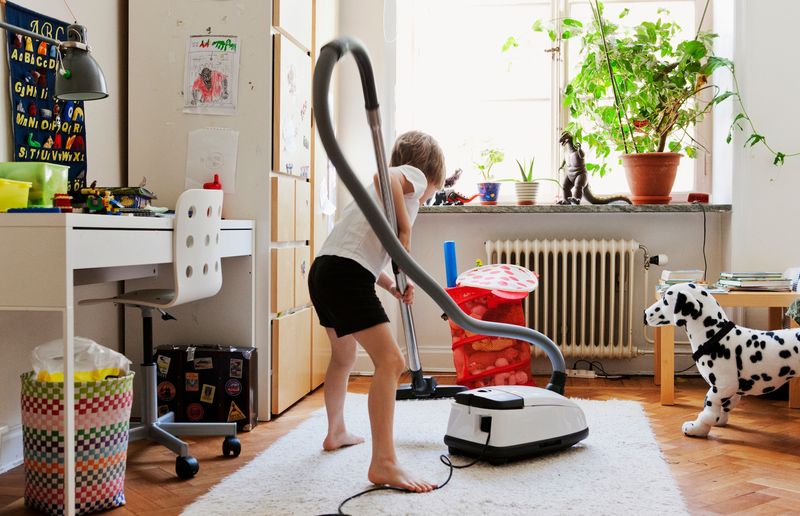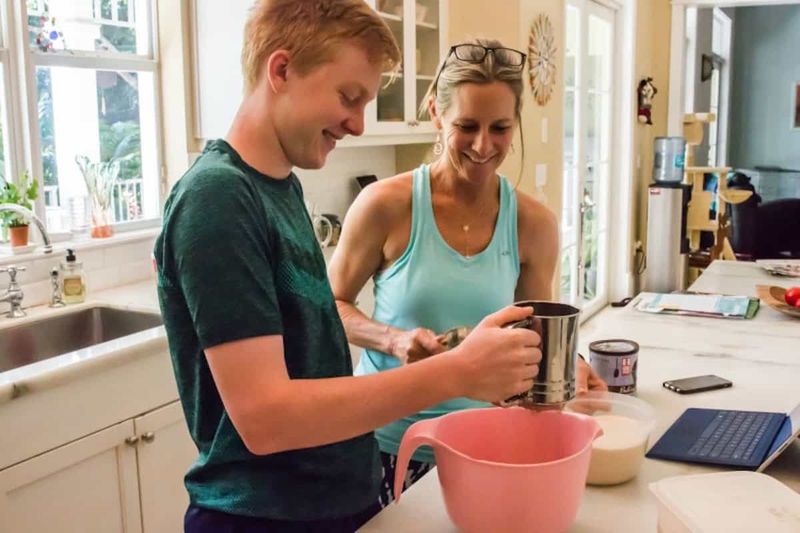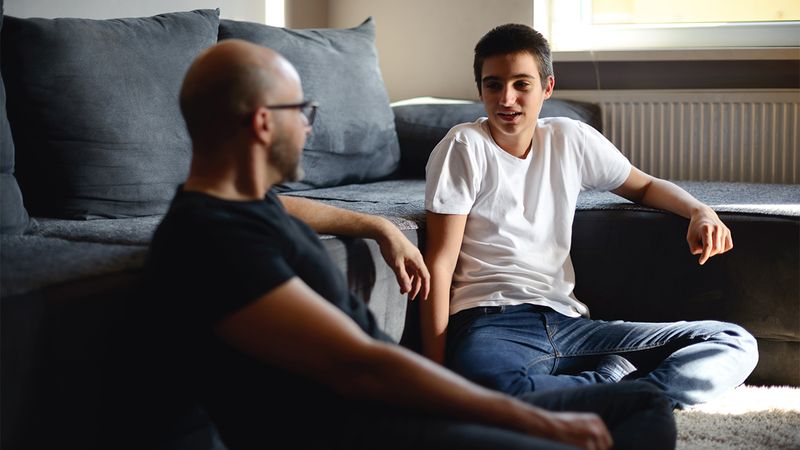You know those moments where you walk into your teenager’s room and realize—oh, this kid is almost grown? You’re not alone. Growing up doesn’t look like a slow, graceful climb; most days, it’s more like stumbling up a hill in shoes three sizes too big.
The truth is, by 15, kids should have some real, honest-to-goodness life skills—stuff that actually matters when no one’s watching.
This isn’t about perfection or prepping for college applications. It’s about making sure your kid can stand on their own two feet, even if they trip a little along the way. Here’s what every kid should be able to do by age 15 (and why it matters more than any report card ever did).
1. Manage Their Own Laundry
Lost socks are a universal mystery, but the real test is whether your teen can find their own clean shirt on a Monday morning. Laundry isn’t glamorous, but it’s power—clean clothes mean self-respect, no matter what high school throws at you.
If your kid can sort lights from darks, handle a washing machine without flooding the house, and actually put their laundry away, give them real credit. It’s not about the perfect fold; it’s about showing up for themselves, even when there’s nobody to clap.
There’s a quiet pride in handling your own mess—even when you dread it. Kids who do their own laundry learn that taking care of the boring stuff is a form of self-love that nobody else can give them. I promise, they’ll thank you eventually—probably after college, but hey, that counts.
2. Cook a Basic Meal
The first time my sister tried to fry an egg, she set off the smoke alarm—twice. Here’s the thing: feeding yourself is about more than hunger. It’s feeling the heat of the pan and knowing, I can do this.
A kid who can cook a meal—mac and cheese counts, but so does chopping veggies or grilling a sandwich—carries a quiet confidence into every room. They know what it means to turn nothing into something edible, even when they’d rather order takeout.
You can tell a lot about how someone cares for themselves by what they eat. When a teen learns the basics in the kitchen, it’s not just about food. It’s about creating a little comfort for themselves, especially when the world outside feels too much.
3. Handle Money and Budgeting
Handing a teen twenty dollars and watching it vanish is a rite of passage. But real independence starts when they understand where the money goes—and what it means to save for something they actually want.
Can they track a simple budget, avoid the lure of impulse buys, and know the difference between “need” and “want?” If so, they’re miles ahead. Maybe they blow their allowance on sneakers once, but next time, they’ll think twice.
Money management isn’t about having it all together. It’s about learning from mistakes, feeling embarrassed when they overspend, and trying again. That’s where real financial common sense is born—one miscalculated pizza at a time.
4. Plan and Manage Their Time
Remember those nights where everything—homework, soccer, chores—collided at once? Time management is less about being perfect, more about learning to juggle. If your kid can plan a week and mostly stick to it, that’s a win most adults never master.
It isn’t easy. Sometimes they’ll double-book or forget something important. Sometimes they’ll stay up too late finishing what they started at the last minute. That’s part of the process.
A teen who understands calendars, reminders, and the value of saying “no” is better equipped for real adulthood than most people twice their age. Give them space to mess up, but remind them: time is the only thing you never get back.
5. Speak Up and Advocate for Themselves
The first time you watch your kid speak up for themselves—it’s electric. Maybe it’s just asking for a seat change, or telling a teacher they need help. It takes guts, and it takes practice.
Self-advocacy isn’t about being loud or pushy. It’s about knowing what you need and feeling brave enough to ask for it. Every time they stand up for themselves, even quietly, they build a little more backbone.
If your teen can explain their needs, set boundaries, and make their own appointments, you’ve already given them a gift most people spend decades chasing. Let them flex that voice, even when it shakes.
6. Write a Thoughtful Message or Email
Texts are easy. But a well-crafted email or message, one that actually sounds like a human wrote it? That’s rare. If your teen can send a note that’s clear, kind, and gets the point across, they’ll stand out—trust me.
There’s an art to the written word, even outside of English class. A thank-you note, an apology, a request for an extension—these things matter. They teach your kid how to own their words and how to fix things when they mess up.
It’s not about fancy vocabulary; it’s about honesty and intention. Being able to write like a real person is underrated—but it’ll take them farther than any grammar quiz ever could.
7. Know Basic First Aid
Blood makes some kids queasy. But being the person who knows what to do when someone falls is real power. If your teen can handle a scraped knee, wrap a sprained ankle, or call for help when things get serious, they’re someone everyone wants around.
The first time my brother patched up a friend’s cut, he felt like a superhero. Not because it was dramatic, but because he handled it. That confidence sticks.
You don’t have to know everything. But basic first aid means your kid won’t freeze when something goes wrong. They’ll step up, even if their hands shake, and that matters more than any test they’ll ever take.
8. Navigate Public Transportation
There’s a kind of freedom that comes from figuring out a bus route alone on a rainy morning. It’s not just about getting from point A to B; it’s about trusting yourself to get where you need to go, even if you get lost once or twice.
If your teen can read a transit map, pay a fare, and ask for directions when needed, they’ll feel the world crack open a little wider. I still remember the nerves the first time I rode the bus alone, and how proud I felt walking home.
Mistakes will happen—a missed stop, a wrong train. That’s part of the adventure. Give them coins for the fare, but let them buy their own confidence.
9. Keep Their Living Space Clean
Nobody expects a teenager’s room to look like a hotel suite. But there’s a difference between messy and unlivable. Kids who can keep their space mostly clean—make a bed, vacuum, wrangle dirty dishes—are learning to respect themselves and anyone else living with them.
The first time my own kid cleaned under the bed without being asked, I did a double take. That’s the magic: the moment they choose order over chaos, not for you, but for themselves.
Sure, the socks pile up sometimes. But making their space a haven (even a little bit) gives them control in a world that so often feels out of their hands.
10. Handle Conflict or Apologize Sincerely
Not every teen can handle the heat of a real argument, but the ones who can? They’ve got something rare. Facing conflict, owning mistakes, and giving a real apology—these are grown-up moves, and most adults still fumble them.
I remember when my friend called out my sarcasm. We argued, then talked, and something shifted. It felt awful—but afterwards, we both grew up a little.
If your kid learns to listen, admit when they’re wrong, and repair the rifts they cause, they’ll never be starved for connection. That’s more valuable than being right.
11. Understand Digital Safety and Boundaries
The internet is wild—nobody needs to pretend otherwise. Being fifteen now means navigating things I never had to deal with: DMs from strangers, rumors that spread in seconds, photos that never really disappear.
Digital safety isn’t just about passwords. It’s about knowing when to step away, how to set boundaries, and what to share (or not). The first time my cousin blocked a toxic friend online, she felt guilty—and then so much lighter.
Teens who “get” online privacy have a kind of armor. Not invincible, but aware. It’s not about being scared; it’s about choosing what parts of themselves are worth protecting.
12. Practice Self-Care and Stress Relief
Imagine a world where every fifteen-year-old knew how to calm themselves down, instead of melting into panic. Self-care isn’t face masks and bubble baths (unless that’s your thing); it’s knowing what helps when things get hard.
My little brother would slam doors and go for a walk when he felt overwhelmed. That was his thing. Sometimes, it’s music, a nap, or just sitting in the quiet.
Kids who find ways to care for themselves when stress hits are building a toolkit for life. It’s not about being chill all the time. It’s about knowing what works when everything feels too loud.
13. Ask for Help When Needed
There’s this myth that strong people never need help—but that’s garbage. Real strength looks like calling out when you’re stuck, even if your voice shakes.
I watched my friend’s daughter dial a helpline after a rough night. Her hands shook, but she did it. That’s courage—choosing to be seen, even when it’s embarrassing.
If your kid can reach out to a parent, teacher, or friend, they’re already ahead. Admitting you need help is harder than pretending, but it’s the difference between sinking and swimming. Let them know it’s brave, every single time.
14. Solve Everyday Problems Independently
Some problems won’t wait for an adult to fix them. Leaky faucet, broken zipper, jammed locker—you name it. Teens who figure out small solutions start to believe they can handle bigger ones.
I watched my nephew fix his bike chain in the driveway, hands covered in grease. He grinned, proud and messy. That’s what matters—the spark of “I did it myself.”
Problem-solving is less about having all the answers and more about trying, failing, and trying again. The first small victory is a seed for bigger ones later.
15. Show Empathy and Respect Differences
Empathy isn’t just sharing a sad emoji. It’s looking at someone who’s different and choosing to listen anyway. The first time I saw my daughter step in when a new kid sat alone, something changed in her—she grew, right then.
Teens who can step outside their bubble, even for a moment, are the ones who change the world. Sometimes, it means sticking up for someone. Other times, it means shutting up and paying attention.
It’s messy, imperfect work. But every time they practice respect and empathy, they make their world a little kinder—and that sticks more than any lesson in a textbook.


